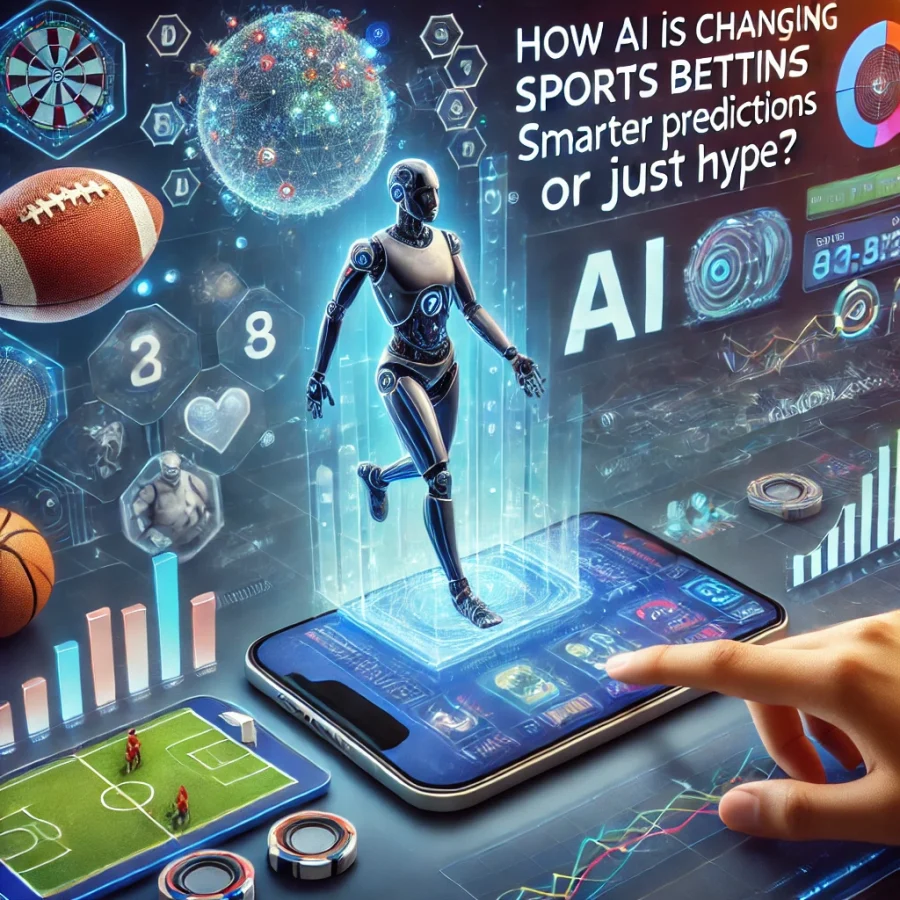Sports betting has evolved dramatically in the past decade, and artificial intelligence (AI) is at the heart of this transformation. From predictive analytics to automated betting strategies, AI promises to revolutionize the way bets are placed and outcomes are predicted. But is AI truly making sports betting smarter, or is it just another overhyped trend?
The Role of AI in Sports Betting
AI is fundamentally changing the sports betting landscape by processing massive amounts of data at unprecedented speeds. Traditional betting relied on human intuition, historical data, and expert analysis. Now, AI can analyze millions of variables in real time, providing more accurate and sophisticated predictions.
Some of the core areas where AI is making an impact include:
- Predictive Analytics: AI models use machine learning to analyze team performance, player statistics, weather conditions, and other factors to generate probability-based outcomes.
- Odds Optimization: AI-powered algorithms adjust betting odds dynamically based on real-time betting patterns and external variables.
- Automated Betting Bots: Some bettors use AI-driven bots that scan odds across multiple sportsbooks to identify the best betting opportunities.
- Fraud Detection: AI helps sportsbooks detect suspicious betting patterns and prevent match-fixing.
Can AI Predict Sports Outcomes Better Than Humans?
AI’s biggest promise in sports betting is its ability to predict match results more accurately than human analysts. AI models are trained on historical data, using machine learning to recognize patterns that may not be obvious to humans. These models can evaluate:
- Player performance trends over time
- Head-to-head statistics
- Injury reports and player fatigue levels
- External factors like referee bias, weather conditions, and travel schedules
While AI models can provide highly accurate predictions, they are not foolproof. Sports are inherently unpredictable, and upsets occur regularly. AI can increase the probability of making informed bets, but it cannot eliminate risk entirely.
The Rise of AI-Powered Betting Strategies
AI has also enabled the rise of algorithmic betting, where bettors use machine learning models to develop automated betting strategies. Some common AI-driven betting strategies include:
- Value Betting: AI scans thousands of odds across different sportsbooks to find value bets where the odds are mispriced.
- Arbitrage Betting: AI identifies instances where different sportsbooks have conflicting odds, allowing bettors to guarantee a profit regardless of the outcome.
- Live Betting Optimization: AI analyzes in-game data in real-time, adjusting betting strategies dynamically as the match unfolds.
Professional bettors and hedge funds specializing in sports betting are increasingly relying on AI models to gain a competitive edge. However, casual bettors may not have access to the same level of technology, meaning AI still provides an advantage primarily to those who invest in it.
The Limitations of AI in Sports Betting
Despite its impressive capabilities, AI is not infallible. Some of the key limitations include:
- Unpredictability of Human Behavior: AI cannot account for last-minute decisions by players, referees, or coaches that can change the outcome of a game.
- Data Quality Issues: AI models rely on accurate and comprehensive data. If the data is incomplete or biased, predictions will be flawed.
- Market Adaptation: As AI-driven strategies become more common, sportsbooks adjust their odds and betting algorithms, reducing the advantage AI provides.
Additionally, sports betting is not just about pure statistics—it involves psychology, momentum, and the unpredictable nature of live events. No AI model can fully capture these nuances.
AI and the Future of Sports Betting
The future of AI in sports betting is likely to see even greater advancements. Some potential developments include:
- AI-Powered Personalized Betting Assistants: Platforms may use AI to offer customized betting recommendations based on user behavior.
- Deep Learning Models for Injury Prediction: AI could predict player injuries before they happen, offering a new layer of predictive analysis.
- Integration with Blockchain for Transparency: AI and blockchain technology could work together to create fairer and more transparent betting systems.
However, as AI becomes more prevalent, regulatory bodies may impose stricter rules to prevent unfair advantages and market manipulation.
Conclusion
AI is undoubtedly reshaping the sports betting industry, offering smarter predictions, automated strategies, and data-driven insights. While it has the potential to increase accuracy and efficiency, it is not a magic solution that guarantees wins. Betting still carries risks, and AI should be seen as a tool rather than a guaranteed path to success. As technology continues to advance, AI will play an even bigger role in shaping the future of sports betting—but the human element of sports will always ensure that surprises remain part of the game.



